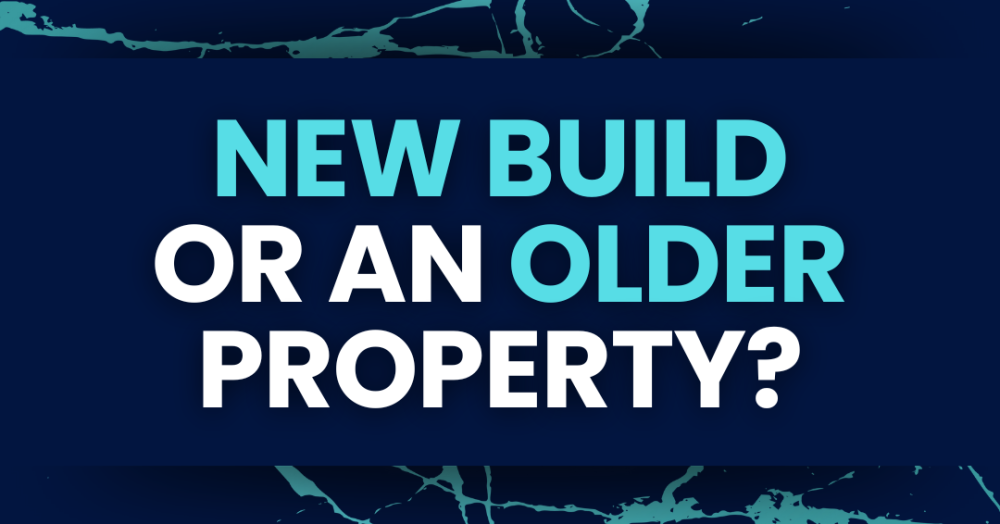When it comes to buying a home in the UK, one of the first decisions many buyers face is whether to go for a brand-new build or an older, more established property. Each comes with its own unique set of advantages and potential drawbacks. Here, we explore the key differences to help you decide what’s right for you.
The Case for New Builds
1. Modern Design and Energy Efficiency
New build homes are designed with modern living in mind. You can expect open-plan layouts, contemporary fixtures, and up-to-date technology, such as energy-efficient heating systems, double or triple glazing, and good insulation. This often translates to lower utility bills and a reduced carbon footprint.
2. Minimal Maintenance
One of the biggest appeals of a new build is that everything is brand new. With appliances, plumbing, and wiring all recently installed, buyers are unlikely to face major repair bills in the first few years.
3. Government Incentives
Schemes such as Help to Buy (in England), Shared Ownership, or First Homes often apply to new builds, making them especially appealing for first-time buyers looking to get on the property ladder.
4. Builder Guarantees
Most new builds come with a 10-year NHBC (National House Building Council) warranty or similar protection, offering peace of mind in case structural issues arise.
5. Customisation Opportunities
If you buy off-plan, you may be able to personalise certain aspects of your new home, such as kitchen finishes or flooring, to suit your taste.
Potential Downsides of New Builds
- Premium Pricing: New builds often come with a price premium. You may pay more per square foot than you would for an older home in the same area.
- Smaller Plots: Modern developments tend to maximise space, which can result in smaller gardens and rooms compared to older properties.
- Snagging Issues: While everything is new, it’s not always perfect. New homes often come with a list of minor defects or "snags" that need fixing after moving in.
- Lack of Character: Some buyers find new builds lack the charm and character of older homes.
The Case for Older Properties
1. Character and Charm
Older homes often feature architectural details like high ceilings, fireplaces, bay windows, and decorative mouldings that give them a distinctive charm.
2. Larger Space and Gardens
Many period homes were built with more generous room sizes and larger plots, making them ideal for families or those seeking more outdoor space.
3. Established Locations
Older properties are often found in well-established neighbourhoods with mature trees, developed infrastructure, and a strong sense of community.
4. Scope for Renovation and Value Increase
An older property might need updating, but this also provides an opportunity to add value through renovations, extensions, or modernisation.
5. Potentially Lower Price Per Square Foot
You might get more space for your money compared to a new build, even if some renovation is required.
Potential Downsides of Older Properties
- Higher Maintenance Costs: Older homes may have aging plumbing, electrics, or roofs that could need significant upkeep.
- Energy Inefficiency: Without modern insulation or double glazing, energy bills can be higher.
- Unforeseen Issues: Damp, structural issues, or outdated construction standards can cause surprises after purchase.
- Less Financial Incentives: Most government schemes are geared towards new builds, meaning you may miss out on financial support.
Key Considerations Before You Decide
1. Your Budget and Mortgage Eligibility:
Consider not only the purchase price but also ongoing maintenance and utility costs. Factor in whether you're eligible for schemes that support new build purchases.
2. Your Lifestyle Needs:
Are you looking for turnkey convenience or a project you can personalise over time? Do you prioritise a modern aesthetic or traditional character?
3. Long-Term Plans:
Think about resale value, potential for appreciation, and how long you plan to live in the home.
4. Location:
Whether it’s a new estate or a long-standing neighbourhood, location will always play a crucial role in quality of life and property value.
Final Thoughts
There is no universally "better" option between new builds and older properties—it all comes down to what suits your needs and aspirations. If energy efficiency, low maintenance, and financial incentives top your list, a new build may be ideal. But if you crave character, space, and the opportunity to add value, an older home could be the perfect fit.
Always do your due diligence, get a proper survey, and seek professional advice where necessary to make a sound investment in your future home. We have over a decade of experience helping people find their dream house so why not give us a call?
0121 681 6327
